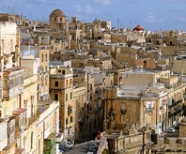Utrecht: Expanding the Dutch Events Conversation
After a whirlwind of an experience in Utrecht, visiting 5 completely contrasting venues, some fantastic restaurants, a boat tour, and a 465-step ascent 112 metres...

Malta will be trying to lure elderly tourists and people with disabilities from European countries to boost the tourism low season between November and March.
Social tourism – a concept which aims to entice the young, the elderly, people with reduced mobility and no-income families – is the focus of an EU-funded project called Accessible Culture For All. Undertaken by the Malta Tourism Authority, it will raise awareness and identify ways how to help the tourism industry to target the social tourist. “There is an opportunity for social tourism on our shores. The aim is to attract more people with access needs to choose Malta as their holiday destination,” Tourism Minister Mario de Marco said.
Generally, people with needs of access did not travel alone, were big spenders and were more likely to return again, he said during a seminar, entitled Growth Opportunities For Tourism In The Low Season, in Valletta. Demographics indicate an ageing population and increasing access needs. Statistics show that more than eight million citizens in Europe have long-standing health problems and disabilities. “Therefore, accessibility should be the norm rather than the exception,” Dr de Marco added.
Globally, the number of those aged 65 and over, who would benefit from accessible tourism, continues to grow. “We are aware that social tourists have to face barriers. We need to make it possible for everyone to go on holiday and we need to ensure everyone has access to travel,” he said. The project includes the voluntary review of the level of accessibility of facilities within the tourism industry and the creation of an online portal to market the information.
Dr de Marco stressed that accessibility was a major concern for the elderly and disabled people.
Referring to the positive results of the last four record years – tourist arrivals in 2011 grew by 31 per cent when compared to the equivalent off-shoulder arrivals in 2006 – Dr de Marco said the Government, MTA and stakeholders would be working together to implement a strategy that “strengthens our tourism product”.
Lynn Minnaert from the University of Surrey said: “We need to be more clever and strategic and sophisticated and treat social tourism more like a mainstream market.” Marie-Louise Mangion, from the MTA, said that another EU-funded project in the pipeline was aimed specifically at the catering and accommodation sector.
Fact box
• The number of tourists aged 65 years visiting Malta has been increasing steadily over the years. In 2011, 12.3 per cent of tourists were 65+.
• 48 per cent of disabled tourists in Germany would travel more often if services were more accessible. Their travelling companions spend over €2 billion each year in England alone.